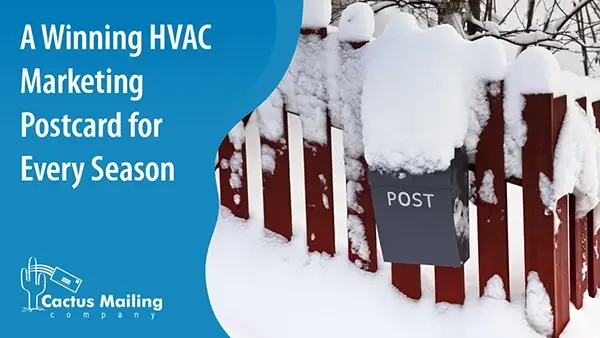We Are Here to Help!
What to Expect from Us:
No Pressure, Just Service!
Get no obligation pricing details and strategies that will work for your business.
Whether you're a new restaurant, retail store, gym, auto shop, or anything in between, one thing remains true across the board: you only get one opening week. Your first week of operation is vital in a number of ways. To start, initial customer impressions are going to help build momentum through word of mouth, provided they have a good experience. In fact, word of mouth will probably be at its peak during your opening month, as the new store generates intrigue within the local community and sparks conversation within circles of family members, friends, and coworkers. Opening week is also a great opportunity to leverage attention from the media, as local news or influencers may be interested in covering your new business which will provide free publicity. In regard to operating your business, your opening week will provide your first experience with real-world conditions, which will help you identify issues in your services and make adjustments as needed. This will allow you to benchmark initial sales data to see which products or services are selling the best, which will help you set realistic goals going forward.
The marketing process for your opening week should begin well before you open your doors to the public. Nobody is going to come to a store that they don't know exists. Even if you're moving into a highly visible area, you cannot expect consumers to know or remember when you'll be opening and what you'll be selling. The best way to help your new business excel is to take the initiative and reach out to the local community by inviting them to your opening event. Just as we like to receive physical invitations to parties and events, your audience will definitely take note if you send them physical marketing material in the weeks leading up to your launch.
Direct mail is an effective marketing tool that you can use to inform potential customers in your location about your new business. You can also use it to provide a first impression to your audience through your design, branding, and the use of graphics on your mail piece. When used strategically, direct mail can significantly boost customer presence during your opening week, so for tips on how to introduce your new business using direct mail, keep reading.

How to Strategize a Direct Mail Campaign
Like any other direct marketing effort, you don't want to send out material without proper strategizing beforehand. Making the most of your direct mail campaign requires you to consider your marketing goals, target demographics, mail piece content, design, and response tracking. Your opening week is vital, and you won't want to neglect any area of your marketing strategy as it could limit a potential boost of clientele. Let’s take a deep dive into each of these elements and what you need to know about them.
Understand Your Target Audience
While word of mouth can accelerate knowledge of your brand through more general audiences, your marketing efforts should target those who will most likely use your products and services. If you've made the decision to open a new business, you likely already have an idea of who your target audience is. You may be catering to men or women, older generations or younger, families or single adults. Whoever your audience is, you need to find out where they are and what they value in your industry. Finding out where they reside will help you determine where you need to concentrate your marketing efforts. What they value will help you craft your message and best communicate that your services are in line with their needs.

Look to Competitors
Start off by doing some research in your local area to see what competitors already exist in your industry and what they have to offer. You can check Google reviews to see what customers are saying these businesses excel at and what they lack. This will give you some understanding of what demands aren't being fulfilled within your community. If your business intends to supply in these areas you should emphasize those aspects in your marketing message. You can also look at your competitors' marketing material in order to identify consistencies in tone, language, call-to-action strategies, and response mechanisms. In each of these areas, you can either choose to align your strategy with what's already working or adopt a different approach to stand out from the crowd. As you learn more about your competition, you will begin to craft your own style so that your branding will be identifiable from your competitors. This will avoid confusion among your audience and establish a strong marketing baseline.
Set Clear Goals
The first step of any marketing campaign should be to determine your goals. Ask yourself what the purpose of this mailing is and try to come up with a roadmap to increasing your overall sales, not only in the short term but over time. Think about which products and services you want to sell the most and create a strategy to win long-term customers and fans of your business. For example, a boutique gym aiming to increase memberships may offer a free trial class as a promotion for new customers. If they were to advertise this via mail campaign, the goal should be to increase trial class signups. This should be reflected in the call-to-action statement on the mailer, which would instruct the recipient to "sign up for a free trial lesson" and provide a QR code, phone number, or some other means of completing the action. All other aspects of your campaign, from mailing list to design, should reflect and support your marketing goal, so think carefully about what you want to achieve.

Design Tips for Direct Mail
With direct mail, you have a few options in terms of how you present your message. Enveloped letters and brochures are commonly used mailer types, and while they can provide more space for copy, they run the risk of being thrown away before they're even opened. A direct mail postcard is more likely to catch the eye of the recipient as they'll see the graphics, branding, and marketing message immediately after pulling it out of the mailbox, making it more likely to leave an impression. With repeated mailings you'll be able to establish brand recall among your audience, increasing the chances that they'll choose you when they're in need of your services.
Choose the Right Elements
When designing your direct mail postcard, it's important that the elements included on your piece support the overall goal of the campaign. The elements that you should feature most prominently on your piece are your call-to-action statement, which instructs the reader on what they should do next- and the means of contact -which provides them with the tool to complete that action. The means of contact could take the form of a QR code, trackable phone number, webpage address, email, or even a map of where your physical store is located. In addition to this, you may want to incorporate other elements such as high-quality images of your product and services, branded graphics like your company logo, and compelling words that describe what you have to offer the reader.

Craft a Compelling Message
The goal of your marketing copy should be to get the reader to take the desired action described in the call-to-action statement. Start with an eye-catching headline that entices the recipient to read the rest of the card. If you're running a promotion, state that in the headline to immediately communicate the value of this postcard. Use the "middle" section of your postcard to describe your products and services and explain what sets you apart from the rest of your industry competitors. Captions or bullet points are an eye-catching and concise way to convey information to your reader without overwhelming them. Finally, make sure to include the call-to-action which instructs the reader on what they should do next. This action should align with your campaign goal and make it as easy as possible for the recipient to follow through. QR codes are one of the most efficient tools you can make use of here if you want them to take action through your website.
Visually Establish Your Brand
Everything from your color scheme, your choice in imagery, and even your font selection should work to establish your brand in the mind of the recipient. We all remember the colors and logos of our favorite restaurants and stores. Your goal should be to position your own brand in the minds of your audience, so that they recall you in an event where they find themselves in need of your services or products. Feature your company logo prominently on your postcard, as it will help in building the association between who you are and what you offer. If you have any specialized fonts or characters related to your brand, this is the perfect time to make use of those as well. Lastly, consider using images of your store locations, employees, or products to further reinforce the brand-service relationship.

Utilize Social Media
Your opening month is when you should be firing on all cylinders and using every accessible channel to your advantage. Use your social media accounts in tandem with your mailing efforts to maximize visibility. You can time your social media posts so that mailer recipients who want to research your company will see the same message and call-to-action that they have already seen on your postcard. It is helpful to have some posts already lined up on platforms like Instagram so that visitors can explore your brand and products further if they want to. You can use pin features to keep relevant posts about ongoing promotions at the top of your feed. This will allow you to continue posting throughout your opening month without having to re-post older content and risk losing comment threads. Marketing campaigns should be a cohesive cross-channel effort, so use every tool you have at your disposal to spread the word about your launch.
Executing the Campaign
With your goals determined, your research completed, and your design perfected, it will be time to print and mail your postcards for delivery. In this part of the process, your major concerns should revolve around who receives your postcards and when they will receive them. Poor campaign targeting leads to less optimal results, so take the time to plan your execution phase as well as the other aspects of your mailing.

Vetting Your Mailing List
Your mailing list can be curated using various demographic and geographic factors. If you're trying to boost in-person store visits during your opening week, you'll want to segment your marketing list geographically to only include those within driving distance. Next, segment your list demographically down to those who best resemble your target audience. If you're a service-based company like a dental office or auto shop, you may want to consider a mailing targeted at new movers in your area, as that demographic is most likely in need of a regular place to obtain those services. If your business is online only, consider trying some smaller mailings concentrated in areas that contain a lot of people who resemble your target audience.
Time Your Mailing
Timing is crucial when you're mailing to promote an opening day event. Keep in mind that performing market research, obtaining a mailing list, creating your design, printing the cards, and mailing them out are all tasks that take time. Even when working with a professional marketing agency, direct mail campaigns are a multi-week process. We recommend starting a minimum of three weeks before your opening event. In some cases, you may even want to start an entire month early to give your recipients plenty of time to plan for attending your event. As you schedule your event, consider if it coincides with any major holidays, as those tend to cause a surge in outgoing mail which means more competition in the mailbox. In that case, time your mailing a week earlier or later if possible.

Coordinate with Digital Marketing
As we mentioned before, opening month is when your marketing should fire on all cylinders. Digital marketing via the Google Display Network is a great way to get some extra mileage out of your mailing campaign. You can easily reuse graphics and copy from your postcard design to create display ads and utilize methods such as addressable geofencing to ensure that you reach people who have already been exposed to your campaign. This makes it possible to remarket and remind your audience about your new business while they surf the web. You could also run a broader display campaign to reach a wider audience in the weeks leading up to your launch, which may be an effective strategy for online businesses, as long as they adopt a cost-per-impression bid strategy.
Measure the Response to Your Campaign
As you fine tune your planning process, be sure to consider a method for response tracking, such as a QR code, custom landing page, or trackable phone number. You could even use the postcard itself to track the response to your campaign by including coupons on it. Whatever your method, it's important to track the number of respondents to your campaign, so that you can gauge its overall success. This data will be important as you perform more marketing campaigns because it will serve as the starting point for comparing results. Comparing the response rates of later campaigns to your initial one will allow you to see which strategies are effective and which ones are less so. This will allow you to adjust your marketing strategy over time and try new tactics to see what produces the best results.

Conclusion
Your first mailing campaign for your new business will undoubtedly be one of your most important. It's important to dedicate time to the process of researching your target audience, finding the value proposition that suits your marketing strategy, designing your mail piece, and timing your execution. It can feel overwhelming to consider marketing strategies while you prepare to launch your new business, so if you need assistance maximizing the potential of your direct mail campaign, you should consult an industry expert. Cactus Mailing has worked on over 50,000 direct mail campaigns over the last 22 years. We can handle all aspects of your campaign from mailing list selection to postcard design to printing & mailing.
See what direct mail can do for your new business - connect with a direct mail expert today.

 Nick Ryan: Oct 17, 2024
Nick Ryan: Oct 17, 2024



 Jill Brown
Jill Brown
 Joe McAtee
Joe McAtee